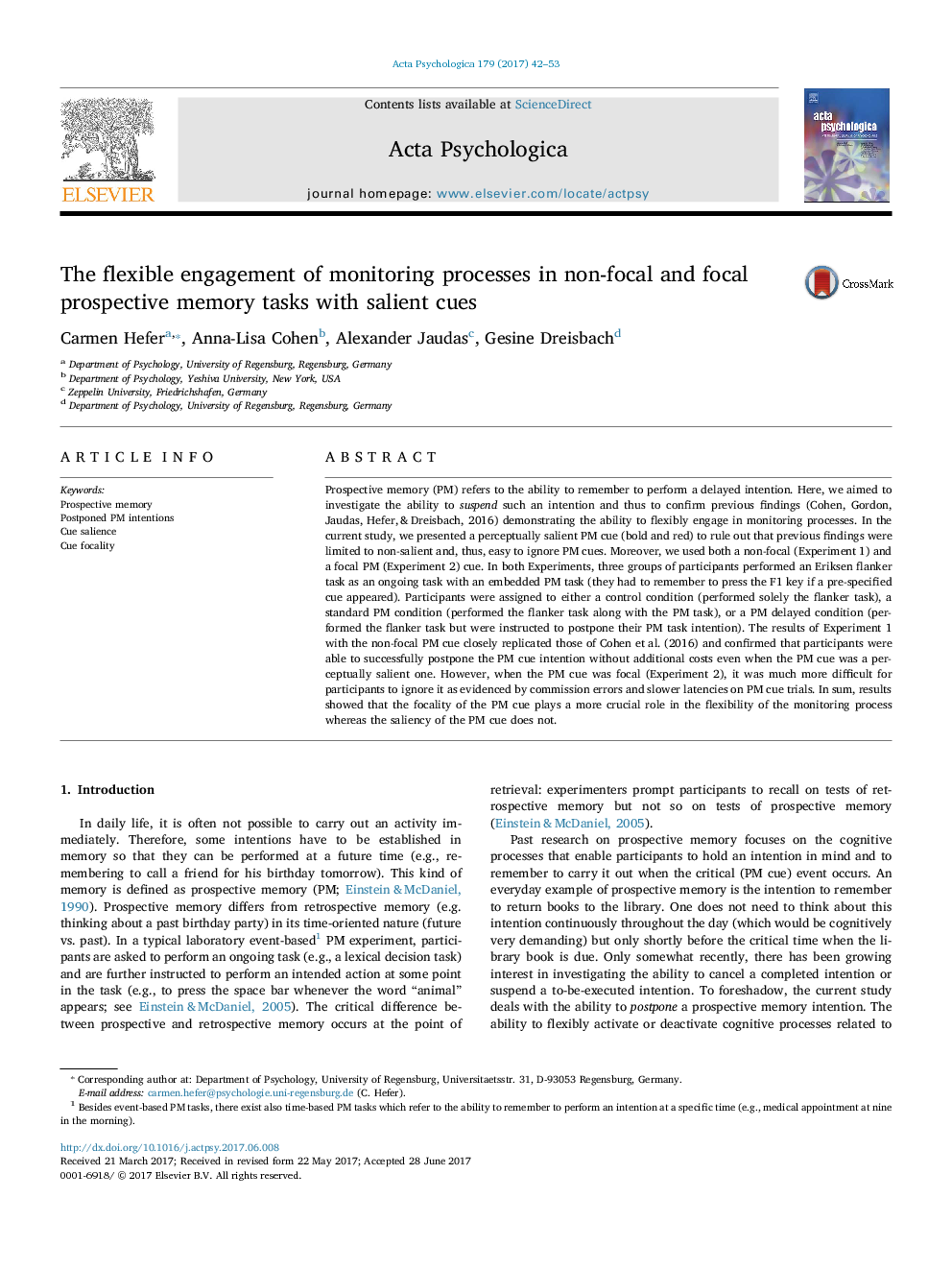ترجمه فارسی عنوان مقاله
تعامل انعطاف پذیری از فرایندهای نظارت در کارهای حافظه آینده نویسی غیر کانونی و کانونی با نشانه های برجسته
عنوان انگلیسی
The flexible engagement of monitoring processes in non-focal and focal prospective memory tasks with salient cues
| کد مقاله | سال انتشار | تعداد صفحات مقاله انگلیسی |
|---|---|---|
| 153117 | 2017 | 12 صفحه PDF |
منبع

Publisher : Elsevier - Science Direct (الزویر - ساینس دایرکت)
Journal : Acta Psychologica, Volume 179, September 2017, Pages 42-53

